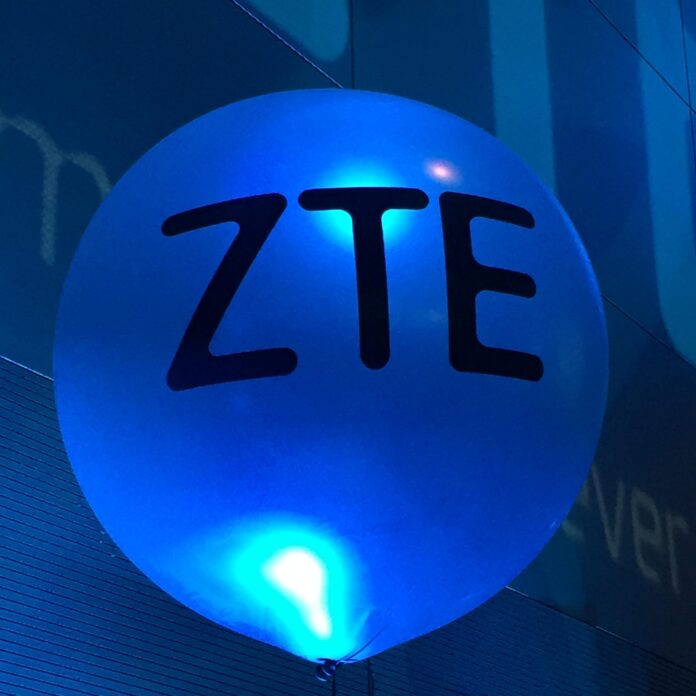Confusion between ZTE’s networks business and devices business could hurt the company’s prospects even if the trade dispute is resolved.
Even as President Trump has seemingly become personally involved in the U.S. Commerce department’s ban on exports to ZTE, the prospects for ZTE’s future devices business in the U.S. (and other Western countries) could be muddled at best, even if the denial of export order is lifted in the relatively near future. While the order does not expressly prohibit ZTE from selling some of its products – notably wireless devices – in the U.S., it did kick off a round of debate related to threats to national security that allowing Chinese technology suppliers sell their products in the U.S. could pose.
Pieces in ZTE’s puzzle
Chinese companies being portrayed as a threat by U.S. politicians and regulators is nothing new. Congress has strongly recommended that U.S. network operators refrain from using networking gear from Huawei and ZTE for years. Recently, Congress expressly prohibited the Pentagon from buying networking equipment from Huawei and ZTE and security products from Russian cyber security vendor Kaspersky. What’s more, the Federal Communications Commission has also gotten involved by taking steps to formally ban the use of federal money in the purchase of Chinese networking equipment in U.S. telecom networks altogether.
However, all of these aforementioned actions only serve to conflate role that the equipment used to build telecom networks, and the devices that access the network, play in the world of global intrigue and spy craft. In addition, this confusion has somewhat little to do with the Commerce Department’s actions. With this confusion in mind, here is a brief look at the major “pillars” of the ZTE story.
- Denial Order: By now, the implications of the Commerce Department’s denial order are widely known. U.S. chipmakers cannot export to ZTE for 7 years. Since U.S. chipmakers, namely Qualcomm, supply upwards of 65%+ of the chips used in ZTE devices, the impacts are obviously devastating for ZTE. However, on its face, the Commerce department’s actions have little, if anything to do with national security concerns related to ZTE’s products. The denial order is in direct response to sanctions placed on Iran and North Korea, and ZTE’s apparent willingness to sell into those countries against U.S. policy.
- Networking Equipment: in addition to consumer devices, ZTE also makes telecom networking equipment, including both fixed and radio access, core and transport gear. If there is a national security threat implicit in any Chinese manufacturers’ products being used by U.S. companies and/or consumers, it is in the use of these type products in U.S. networks. Policy makers have long been suspicious that equipment from Chinese technology companies could contain “backdoors” for Chinese government agencies to siphon data from U.S. networks to spy on the U.S., or to compromise U.S. ICT networks in both minor and material ways. As such, bans on using Chinese gear in American networks have the widest spectrum of political support.
- Consumer Devices: Against the backdrop of the previous two points, the fact that ZTE sells handsets and other consumer devices in the U.S. has come under fire. At a simplistic level, the rhetoric from U.S. politicians and regulators has posited that since the networking equipment made by Chinese tech companies could pose a national security threat, then the devices that are attached to the network could also serve as conduits for data extraction and/or other potentially harmful actions. Here is where ZTE could have the strongest argument that the sentiment against the company is unfounded. Since the majority of key components used in ZTE phones are sourced in the U.S., and the operating systems used in many ZTE phones is stock Android, there is a line of thinking that holds that ZTE phones are no more likely to be capable of covert, nefarious activities than devices made by Samsung, and other device manufacturers that use U.S. chips and Android operating systems.
ZTE devices in the court of public opinion
Against the backdrop of the previous three points, there is little doubt that ZTE has become a focal point in a looming trade war between the U.S. and China. However, even if a trade war is averted (hopefully); even if the Commerce Department’s order is lifted (likely); even if ZTE or Huawei networking gear never make up a meaningful part of the ICT infrastructure in the U.S. (quite likely), the future of ZTE’s device business is probably at most risk. Fairly or unfairly, ZTE’s devices are seen by many as indistinguishable from the company’s other products in terms of their potential threat to U.S. national security.
Once the denial order is lifted, there are plenty of steps that ZTE can take to restore its reputation in the U.S., and the West in general. Starting with a strong campaign to bolster confidence in its device business should be at the top of ZTE’s to-do list. Otherwise, the company will almost certainly suffer meaningful long-term damage regardless of what President Trump negotiates, or the Commerce department decides.

